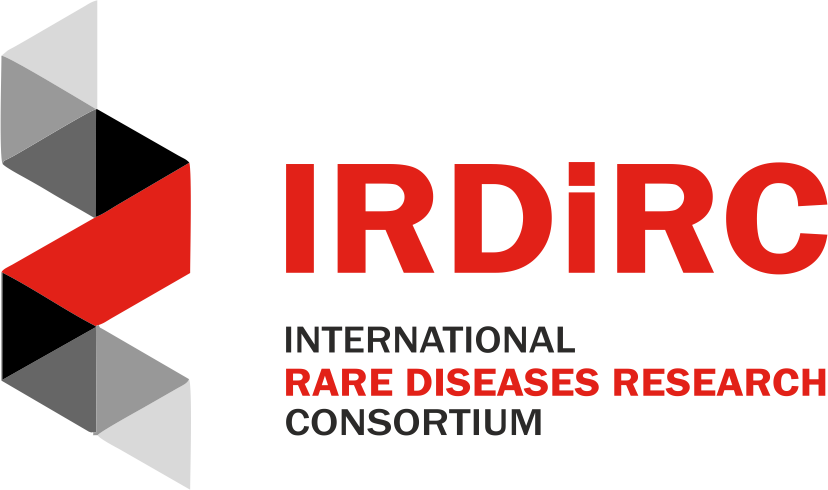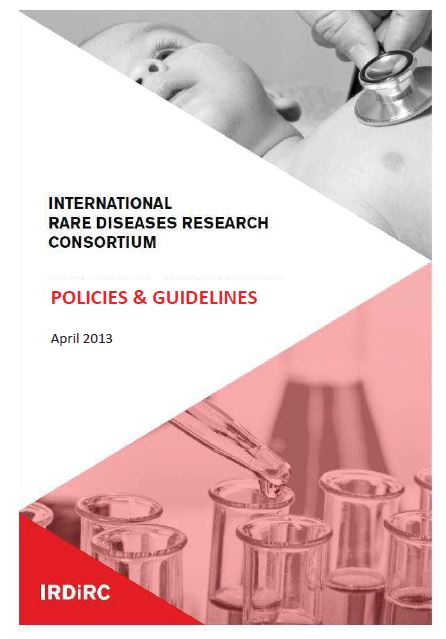IRDiRC Policies & Guidelines
have been updated, please see below to
download the pdf document.
In much of rare diseases research efforts are compartmentalized, data are scattered, and the number of patients is often small. The need for collaboration is therefore critical to enable progress toward better diagnoses and therapies for rare disease patients.
The IRDiRC Policies and Guidelines, agreed upon by members in April 2013, were set out to emphasize collaboration in rare disease research, involvement of patients and their representatives in all relevant aspects of research, as well as the sharing of data and resources.
The Policies and Guidelines, ratified by IRDiRC members for implementation in their respective rare disease research programs, are structured around 11 major topics:
- Data sharing and standards
- Ontologies
- Diagnostics
- Biomarkers
- Patient registries
- Biobanks
- Natural histories
- Therapeutics
- Model systems
- Publication and intellectual property
- Communications
IRDiRC invests effort to disseminate the Policies and Guidelines as best practices in international rare diseases research, assesses their impact, and updates them, as needed, to reflect changing needs and relevancy in rare diseases research.
Improving research methodologies in addition to involving all relevant stakeholders (e.g. scientists, clinicians, patients, companies, regulators) is essential to achieving efficient and effective international rare disease collaborations.
Rare disease research has made considerable strides, and the Policies and Guidelines will further push the progress of rare disease diagnosis and treatment.
Related documents and links:
- IRDiRC Policies and Guidelines – May 2020
- IRDiRC Policies and Guidelines – Abridged Version 2013
- IRDiRC Policies and Guidelines – Extended Version 2013
- IRDiRC Vision and Goals
For further information, please refer to the article by Lochmüller H., et al. The International Rare Diseases Research Consortium: Policies and Guidelines to maximize impact. Eur J Hum Genet 25, 1293–1302 (2017).
FDA disclaimer: FDA participates as a member of IRDiRC’s Committees as a part of the Agency’s efforts to advance the evaluation and development of products (drugs, biologics, devices, or medical foods) including those for the diagnosis and/or treatment of rare diseases or conditions. FDA’s membership in IRDiRC should not be construed as an endorsement of IRDiRC’s specific policies, activities, or products


